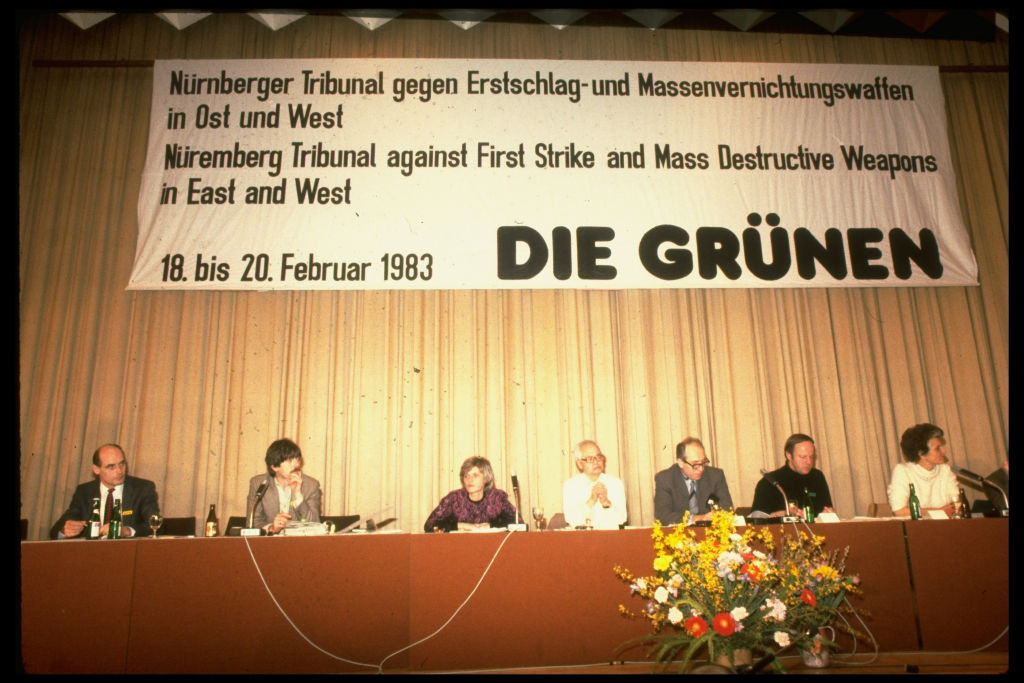Thirty-three years ago, Jacques Poos, President of the Council of the EU, announced that the impending civil war in Yugoslavia was “Europe’s hour” to take its place on the world stage. Alas for Euro-federalists, the bloc failed to keep the peace and was eventually swept aside by NATO, whose bombing campaigns brought hostilities to an end. Today Europe finds itself with another moment to assert its strategic interests, this time in Syria. The EU can help determine whether post-Assad Syria becomes a safe place for returning exiles or another violent hellscape like post-Gaddafi Libya. Incoming President Trump sees no American interests at stake in Syria, but the EU does not have that luxury. Syria meets the standards for the EU’s Common Foreign and Security Policy, being close by and rather important to the EU’s internal politics as the events of 2015 demonstrated. The speed with which EU states slammed shut the asylum process for Syrians after the fall of the Assad regime shows how eager they are to end the great migration experiment. While everyone remembers Angela Merkel’s “Wir schaffen das” moment of hubris, many are now recalling her subsequent assurances that asylum was a temporary status, and that those claiming it would one day return home. That day may be fast approaching, if the EU can muster the willpower and financial resources to make it happen.
Syria lies in ruins, in need of massive reconstruction aid as well as the human resources embodied in the millions of its citizens who fled the horrors inflicted by Bashar Assad. Encouraging these exiles to return and contribute to the resurrection of their homeland will benefit Syria and help dilute the fundamentalist elements present in the victorious rebel forces. Transforming the country into a place of safe (if not entirely comfortable) return should be a strategic objective of the European Union. The leverage associated with billions of euros in reconstruction aid could allow the EU to request certain basic assurances from the new Syrian regime, such as non-persecution of religious and ethnic minorities and equal access to education for Syrian women. While Syria is never likely to become a Western democracy, sufficient amounts of EU aid can disenfranchise militant factions by offering literally concrete improvements to Syrian cities.
It is easy to forget that Marshall Plan aid helped defang potentially revanchist movements after the Second World War. Remaining devotees of Italian fascism, Vichy rule and Nazi policies were politically bankrupted by the offer of American cash tied to liberal reforms. Similarly will jihadis find it hard to compete for the support of average Syrians seeking peace and prosperity once the EU funds start rebuilding Syrian homes and hospitals. Control of critical reconstruction aid will bolster the new government in Damascus and make it responsive to the EU’s need to make Syria safe for returnees. Cooperation with Turkish President Erdoğan will be crucial. Not only is he the external sponsor of the victorious rebel forces, he can mobilize the Turkish construction firms that have great experience managing large projects across the Middle East. Erdoğan is also capable of providing essential security for the reconstruction effort in cooperation with his local allies. A joint success for Erdoğan and the EU in Syria could do much to repair relations between Ankara and Brussels.
Unfortunately, this happy vision runs headlong into budget reality. The European Commission is currently scratching around in the sofa cushions for the cash needed to fund its next budget and cannot easily repurpose funding for legacy programmes like regional development aid or (quelle horreur!) the Common Agricultural Policy. Dunning member states for additional funds while the EU enforces fiscal austerity on them is a complete non-starter. Additional joint borrowing along the lines of the Next Gen EU programme, a Covid recovery policy meant to be temporary, is an obvious solution were it not for unbending German resistance. Berlin’s opposition to eurobonds prevents the bloc from leveraging its aggregate borrowing capacity to meet its critical needs, be it defence spending or the stabilisation of Syria. The EU has a peevish German accountant where its strategic brain should be.
Standing aloof from Syria is not a prudent policy of non-intervention. It is rather an endorsement of instability and constitutes a missed chance to bring the era of uncontrolled migration to a close. Rebuilding Syria and expediting the return of her citizens would help stabilise the Middle East and defuse the fraught politics of migration in Europe. The traditional centrist parties across the EU are under siege largely because of migration, seen by many voters as a threat to public safety and the finances of the social welfare state. Centrist parties need to show their voters that they have a solution, and can draw a line under years of political dysfunction on this issue. Germany in particular should realise that stabilising Syria and returning her exiles would be a political success worth paying for. The past decade proves that even wealthy Germany has a limited capacity to turn refugees into sturdy, tax-paying Burghers. The spectre of healthy young Syrian men subsisting indefinitely on state handouts has helped boost the AfD into second place in national polls and may prevent the formation of a stable coalition after next year’s election. Reviving the innate centrism of traditional German politics requires a strategic vision greater than the politics of deficit reduction. If the EU and Germany fail to mobilise the resources needed to make a success of post-Assad reconstruction, what happens next in Syria is unlikely to stay in Syria.





Brexiteers voted ‘Out!’ but are left still tied to foreign regulators they did not elect